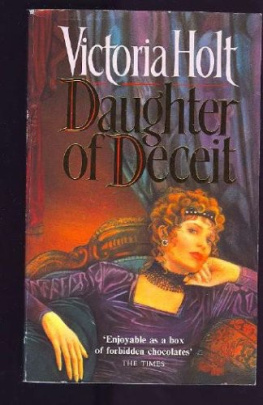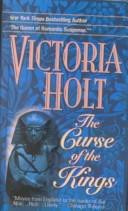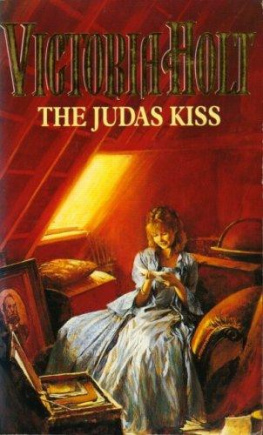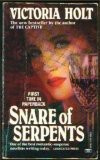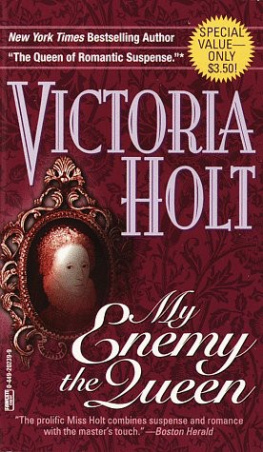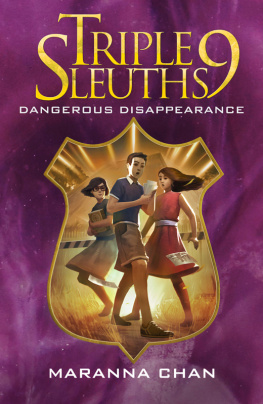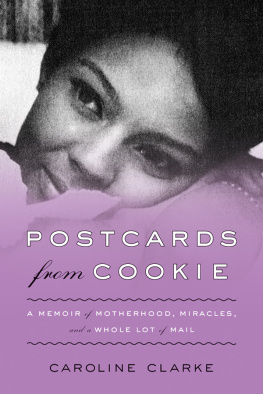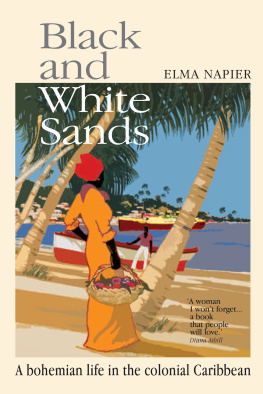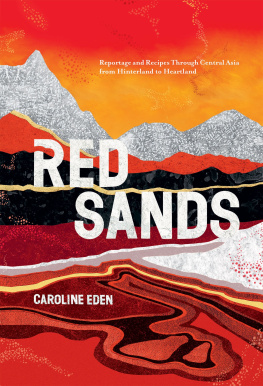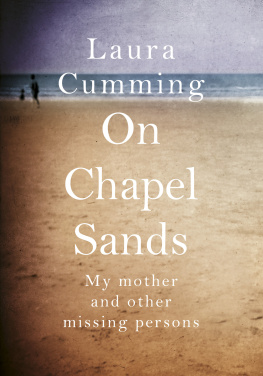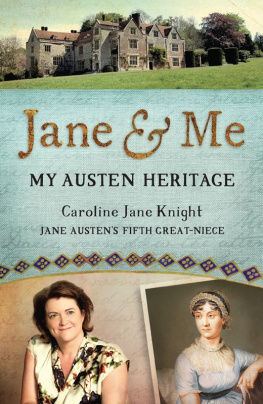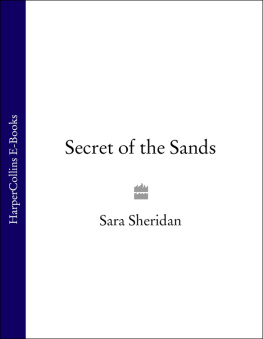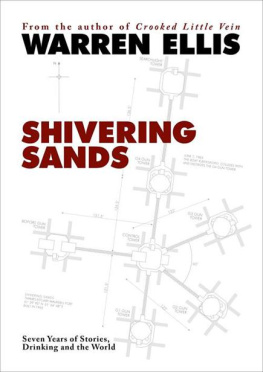Victoria Holt
The shivering sands
I am wondering where I should begin my story. Should it be on the day when I saw Napier and Edith being married in the little church at Lovat Mill? Or when I was sitting in the train starting out on my journey to discover the truth behind the disappearance of my sister Roma? So much of importance happened before either of these significant events; yet perhaps I should choose the second alternative because it was then that I became inescapably involved.
Romamy practical, reliable sisterhad disappeared. There had been enquiries; there had been theories; but no indication of where she had gone had been revealed. I believed the solution to the mystery was to be found where she had last been seen; and I was determined to discover what had happened to her. My concern for Roma was helping me over a difficult period of my life, for sitting in that train was a lonely and bereaved womanbrokenhearted, I should have said had I been a sentimentalist, which I was not. Indeed, I was a cynicso I assured myself. Life with Pietro had made me so. Now here I was without Pietro, like a piece of driftwoodlost and aimlessand with only the smallest of incomes which it was imperative to augment by some means, when this opportunity was offered to me by what appeared to be the benign hand of fate.
When it had been clear to me that I must do something if I wanted to eat adequately and keep a watertight roof over my head, I had tried taking pupils and I had a few but the money this brought in was not enough. I had believed that in time I should build up a clientele and perhaps discover a young genius which would have made my life worthwhile; but so far my ears had been in constant rebellion against halting rendering of The Blue Bells of Scotland and no budding Beethoven ever sat on my piano stool.
I was a woman who had tasted life and found it bitterno, bittersweet, as all life is; but the sweetness was gone and the bitterness remained. Poised, yes, and experienced; the thick gold band on the third finger of my left hand bore evidence of that. Young to be so bitter? I was all of twenty-eight, but that would generally be agreed to be young to have become a widow.
The train had traveled through the Kent countryside, that Garden of England which would shortly be pink and white with blossoming cherry, plum and apple, past hopfields and cowled oast houses, and was plunging into a tunnel to emerge a few moments later into the uncertain sunshine of a March afternoon. The coastline from Folkestone to Dover was startlingly white against the gray green sea and a few gray clouds were being scurried across the sky by a tetchy east wind. It was sending the water hurtling against the cliffs so that the spray shone like silver.
Perhaps, like the train, I was emerging from my dark tunnel and coming into sunshine.
It was the sort of remark which would have made Pietro laugh. He would have pointed out what a romantic I was under that entirely false facade of worldliness.
Such uncertain sunshine, I noticed at once, with a hint of cruelty in the windand the ever unpredictable sea.
Then I suffered the familiar grief, the longing, the frustration, and Pietros face rose up from the past as though to say: A new life? You mean a life without me. Do you think you will ever escape from me?
No, was the answer to that. Never. You will always be there, Pietro. There is no escapenot even the grave.
Tomb, I told myself flippantly, would sound so much better. Much more Grand Opera. That was what Pietro would have saidPietro my lover and rival, the one who charmed and soothed, the one who taunted, who inspired and destroyed. There was no escape. He would always be there in the shadowsthe man with and without whom it was impossible to be happy.
But I had not come on this journey to think of Pietro. The object was to forget him. I must think of Roma.
* * *
Now I should say something about the events which led up to this moment, how Roma came to be at Lovat Mill and how I met Pietro.
Roma was two years my senior and we were the only children. Both our mother and father had been dedicated archaeologists to whom the discovery of ancient relics was of far greater importance than being parents. They constantly disappeared on digs and their attitude toward us was one of vague benevolence which was at least unobtrusive and therefore not unwelcome. Mother had been something of a phenomenon for it was unusual in those days for a woman to take a part in archaeological exploration and it was through her interest in the subject that she met Father. They married, no doubt expecting a life of exploration and discovery; this they started to enjoy until it was interrupted first by the arrival of Roma and then by myself. Our appearances could not exactly have been welcomed but they were determined to do their duty by us and at early ages we were shown pictures of flint and bronze weapons discovered in Britain and were expected to show the interest most young children would have felt for a jigsaw puzzle. It soon became apparent that Roma did feel this interest. My father made excuses for my youth, Itll come, he said. After all, Romas two years older. Look, Caroline, an entire Roman bath. Almost intact. What do you think of that, eh?
Roma was already their favorite. Not that she set out to be. This overwhelming passion had been born in her, she did not have to pretend. Perhaps rather cynically for one so young, I would try to assess my own value in my parents eyes. As much as a pieced-together necklace of the Bronze Age? Not quite. Not to be compared with a Roman mosaic floor. A flint from the Stone Age? Perhaps, for they were fairly common.
I wish, I used to say to Roma, we had more ordinary parents. Id like them to be angry sometimesperhaps they could beat usfor our own good of course which is how all parents excuse themselves. That would be rather fun.
Roma, in her matter-of-fact way, retorted: Dont be silly. Youd be furious if they beat you. Youd kick and scream. I know you. You only want what you havent got. When Im a little older Papa will take me on a dig.
Her eyes shone. She could scarcely wait for the day.
Theyre always telling us we must grow up to do useful work.
Well, so we should.
But it only means one thing. We have to grow up to be archaeologists.
Were lucky, stated Roma. She always made statements; she was so sure that what she said was right; in fact she wouldnt have said it until she was sure. That was Roma.
I was the odd one, the frivolous one, who liked to juggle with words, rather than relics of the past, who saw something amusing when she should have been serious. I didnt really fit into my own family.
Roma and I were often at the British Museum, with which my father was connected. We would be told we might amuse ourselves there with the implication that we had been given the entry into some holy place. I remember walking on the sacred stones and pausing, my nose pressed against cold glass, to examine weapons, pottery and jewelry. Roma would be entranced; and later she always wore odd beads, usually of rough hewn turquoise matrix or chunks of amber and badly drilled cornelianher ornaments always looked prehistoric as though they had been dug up from some long-ago cave. I suppose that was why they appealed to her.
Then I discovered an interest of my very own. From my earliest memories I was interested in sounds. I loved that of trickling water, the sound of fountains playing, the clop-clop of horses hoofs on the road, the call of the street traders; the wind in the pear tree in our tiny walled garden in the house near the Museum, the shouts of children, the birds in springtime, the sudden bark of a dog. I could even hear music in the dripping of a tap which exasperated others. When I was five years old I could pick out a tune on the piano, and would spend hours perched on the stool, my hands, scarcely emerged from their bracelets of baby fat, exploiting the miracle of sound. If it keeps her quiet shrugged the nannies.


